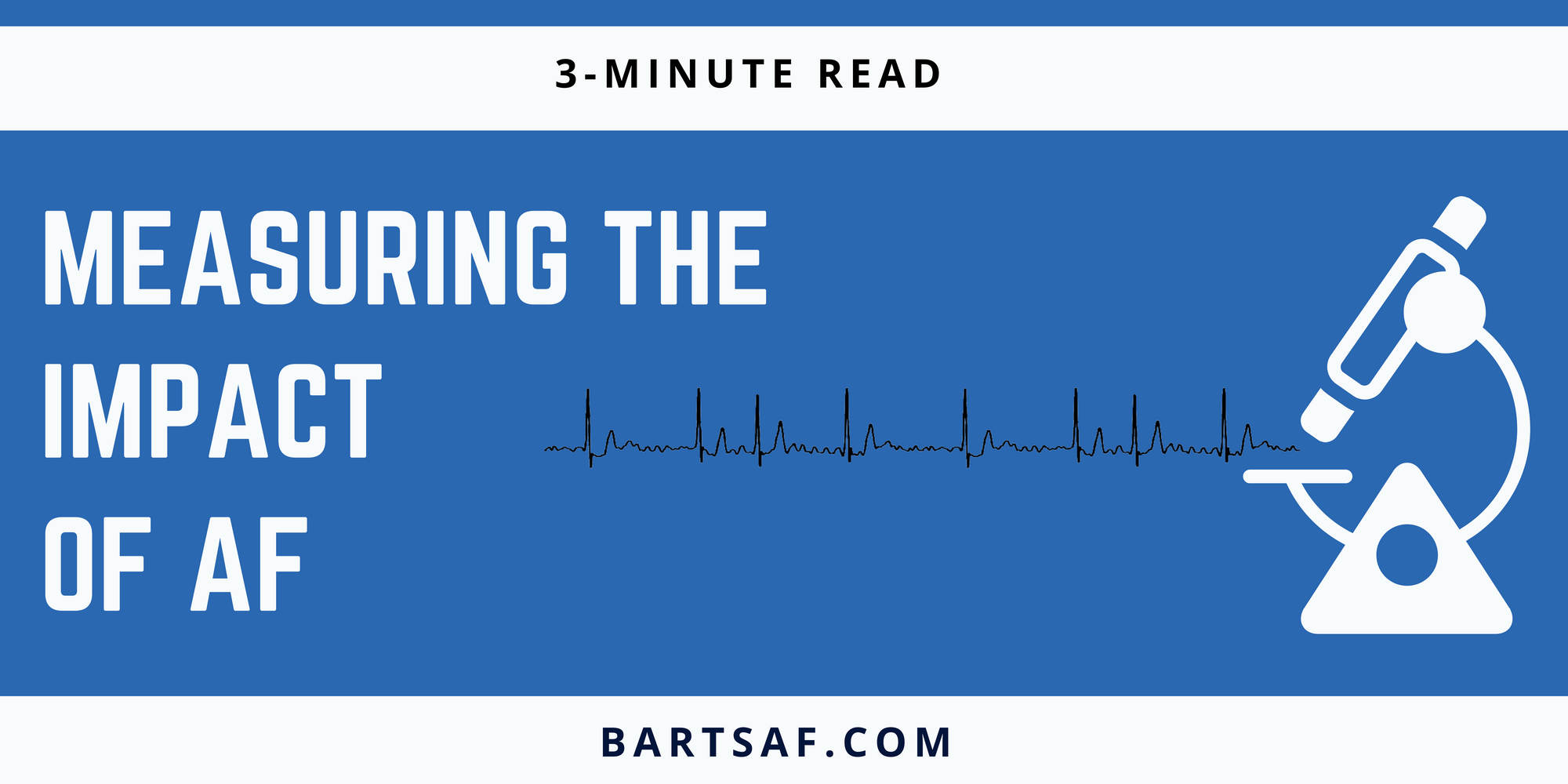Measuring the impact of AF

The impact of AF symptoms can vary greatly from none at all, to debilitating symptoms requiring hospital admission. They also can guide the treatment approach to be taken- the worse the impact, the greater the benefit:risk ratio of different treatment options.
Health related quality-of-life (HRQoL) scores are patient reported surveys to measure the impact of a condition on a person’s life. They allow you to put a number to the impact of a disease (this is called a ‘qualitative measure’) and allows your medical team to assess how this changes over time and with different treatments. You can use it to compare different therapies such as medications versus catheter ablation.

Globally, the AFeQT (the AF effect on QualiTy of life) questionnaire is well established and in the UK, the ‘Barts AF PROM (Patient reported outcome measure)’ is commonly used. Both are used in the AFFU-AW study and the AFHF study before and after ablation to measure the impact on these participant groups. The domains of interest include symptoms, daily activities, treatment concerns, and treatment satisfaction. Now these questionnaires aren’t perfect but they go through vigourous psycometric evaluation in large numbers of diverse patient groups to validate them.


CABANA was a large international mutli-centre study that recruited more than 2200 patients over 7 years and randomised half to ablation therapy and half to medical therapy. Both groups experienced an improvement in quality of life, but because they used the validated AFeQT questionnaire, they were able to compare the two treatment groups against each other. There was a greater improvement in the AFeQT score in the ablation group one year after the ablation therapy. There has been a lot of discussion about whether there’s a placebo effect associated with the procedure (i.e. do patients anticipate an improvement in quality of life simply because they are having an invasive treatment?) and so we eagerly anticipate the results of the ORBITA-AF study which is looking to randomise patients with AF to different treatments but ‘blind’ them to what treatment they’re having- more on this next week!

Spertus J, Dorian P, Bubien R, Lewis S, Godejohn D, Reynolds MR, Lakkireddy DR, Wimmer AP, Bhandari A, Burk C. Development and validation of the Atrial Fibrillation Effect on QualiTy-of-Life (AFEQT) Questionnaire in patients with atrial fibrillation. Circ Arrhythm Electrophysiol. 2011 Feb;4(1):15-25. doi: 10.1161/CIRCEP.110.958033. Epub 2010 Dec 15. PMID: 21160035.
Mark DB, Anstrom KJ, Sheng S, Piccini JP, Baloch KN, Monahan KH, Daniels MR, Bahnson TD, Poole JE, Rosenberg Y, Lee KL, Packer DL; CABANA Investigators. Effect of Catheter Ablation vs Medical Therapy on Quality of Life Among Patients With Atrial Fibrillation: The CABANA Randomized Clinical Trial. JAMA. 2019 Apr 2;321(13):1275-1285. doi: 10.1001/jama.2019.0692. Erratum
